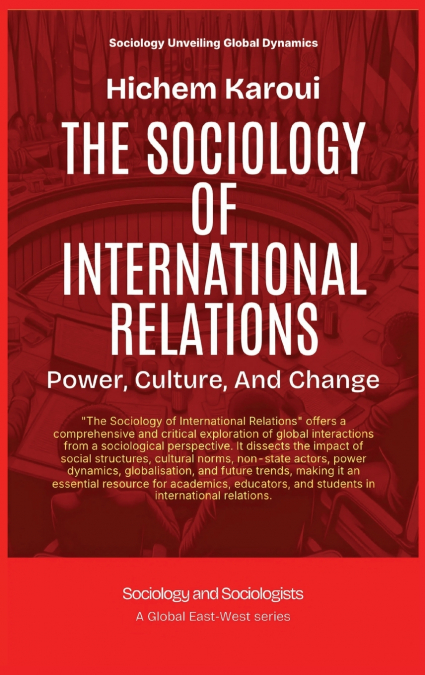
 Librería Perelló (Valencia)
Librería Perelló (Valencia)
 Librería Aciertas (Toledo)
Librería Aciertas (Toledo)
 Librería Elías (Asturias)
Librería Elías (Asturias)
 Donde los libros
Donde los libros
 El AlmaZen del Alquimista (Sevilla)
El AlmaZen del Alquimista (Sevilla)
 Librería Kolima (Madrid)
Librería Kolima (Madrid)
 Librería Proteo (Málaga)
Librería Proteo (Málaga)
A Burning Issue: The Sociological Analysis of International RelationsThis publication brings a new angle to the understanding of international relations. Rather than focusing solely on the state, it approaches global interactions sociologically. This shift helps us better appreciate how social structures, cultures, including norms and identities as systems of governance, culture in particular, shape politics on the global stage. It also brings to the fore the fundamental roles of non-state actors.As the title suggests, at the heart of this work is advanced globalization and the dynamic social construction of international norms as values and their impacts on world affairs. Constructivism, as a major supporting theory, vividly illustrates how shared beliefs or collective identities continually shape the behaviours, policies and relations of states towards one another or international institutions. The book delves into the dynamic and contested nature of cultural norms and social identity within international politics, keeping readers engaged and intrigued.By dissecting the roles of corporations, non-governmental organisations, and transnational advocacy networks in international relations, the text redirects attention from the traditional scope of global governance. These non-state actors, with their transformative potential, engage with states and shape international norms, often catalysing change in human rights, environmental sustainability, and public health on a global scale.Power disparities and inequality issues constitute another crucial dimension of the analysis. The book analyses the social structure within which class, gender, race, and ethnic divisions dominate inequality in power and resources in the world system. It analyses the governance of world politics through one focus of critical theory. It seeks to answer why these inequalities exist and how more just international relations can be achieved.The conjunction of globalisation and international politics is thoroughly discussed in this book. It looks at the opportunities and challenges that arise from people, goods, and ideas crossing borders easily. To readers who wish to understand the phenomena responsible for global change, especially its processes, the impacts of these processes on culture and social identity will leave them feeling well-informed about current global preoccupations.By analysing the latest developments in global politics, this book positions itself as a guide to the future of international relations. It engages with the impacts new social movements, technologies, and changes in power relations have. This perspective equips readers with the knowledge to anticipate and understand the changing scope of international relations in an interlinked world, empowering them for the future.